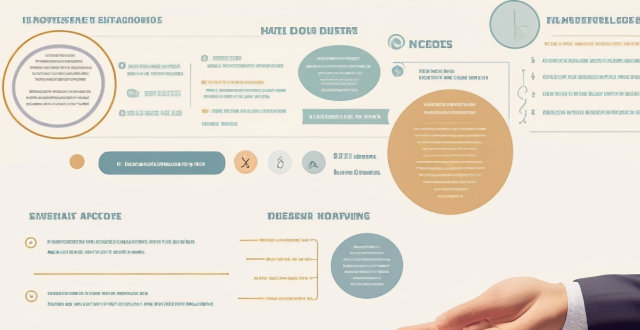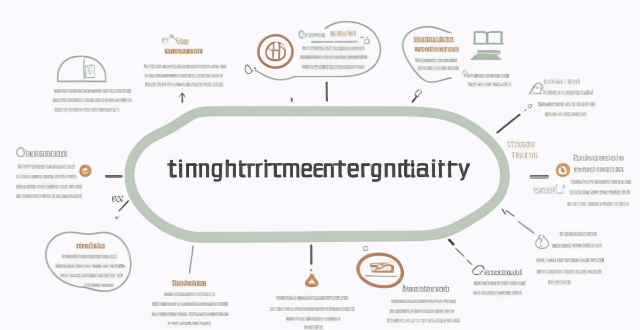Bed Time

Is there a recommended amount of time to spend in bed for optimal rest ?
This text discusses the recommended amount of time to spend in bed for optimal rest. It emphasizes the importance of sleep for overall well-being and suggests aiming for 7-9 hours of sleep per night, with individual needs varying. The quality of sleep is also crucial, and good sleep habits can improve it. Chronic sleep deprivation can have serious consequences, so prioritizing sleep is essential for long-term health and happiness.

What is the best time to exercise for better sleep ?
This article discusses the best time to exercise for better sleep. Regular physical activity is known to improve sleep quality, but the timing of your workout can significantly impact how well you rest at night. The ideal time to exercise is in the morning or early afternoon, as these times allow for ample cooling down and winding down periods before bed. However, individual preferences may vary, and consistency is key; finding a time that works for you and sticking to it will have the most significant impact on your sleep.

Is there a link between screen time and decreased attention span ?
In the digital age, excessive screen time has been linked to decreased attention span. Studies show that prolonged exposure to screens can lead to reduced ability to focus, shortened attention span, and impaired memory retention. The relationship between screen time and attention span can be understood through mechanisms such as dopamine release, fragmented attention, disrupted sleep patterns, and reduced physical activity. Research findings support these claims, with studies showing that children and college students who spend more time on screens have shorter attention spans and lower academic performance. However, there are ways to mitigate these effects by setting limits on screen time, practicing mindful usage, taking breaks, engaging in physical activity, and prioritizing sleep. By being mindful of our screen habits and taking steps to mitigate their impact, we can maintain healthy attention spans and overall cognitive well-being.

How can I organize my cleaning routine to save time ?
The text provides tips on how to organize your cleaning routine to save time. It suggests creating a cleaning schedule with daily, weekly, and monthly tasks; using multi-tasking products; decluttering regularly; involving family members in the process; and using technology to streamline the routine. By following these tips, you can plan, prioritize, and stay consistent with your cleaning schedule to save time.

How does sleep deprivation affect muscle recovery after workouts ?
Sleep is crucial for muscle recovery after workouts, as it allows the body to repair and rebuild damaged muscle tissue. Sleep deprivation reduces growth hormone production and protein synthesis, leading to inefficient muscle recovery. Strategies for improving sleep quality include establishing a consistent sleep schedule, creating a relaxing bedtime routine, avoiding screens before bed, getting plenty of exercise, and creating a comfortable sleeping environment. By prioritizing sleep, you can improve muscle recovery and overall health.

What are some effective time management techniques for busy professionals ?
Effective Time Management Techniques for Busy Professionals: 1. Prioritize Tasks: Identify key goals, rank tasks by urgency and importance, and focus on high-impact tasks. 2. Create a Schedule: Plan your day in advance, block out time for tasks, and stick to the schedule while being flexible. 3. Use Time-Tracking Tools: Monitor your time spent on tasks, analyze your time data, and set time limits using methods like the Pomodoro Technique. 4. Minimize Distractions: Turn off notifications, create a distraction-free environment, and practice mindfulness to stay focused. 5. Delegate Tasks: Identify tasks that can be delegated, assign them to qualified team members, and provide clear instructions and expectations. 6. Take Breaks and Recharge: Schedule regular breaks, engage in relaxing activities, and maintain a healthy work-life balance to avoid burnout.

Is there an optimal time of day for exercising and why ?
Is there an optimal time of day for exercising? The science behind exercise timing suggests that certain times may be more effective than others due to factors such as circadian rhythms, muscle strength and endurance, cardiovascular health, and weight loss. However, individual preferences and practical considerations should also be taken into account when choosing a time of day to exercise. It is important to find a time that works best for you and stick to a regular exercise routine.

How do celebrities spend their leisure time ?
Celebrities enjoy leisure activities such as traveling, pursuing hobbies, spending time with family and friends, and engaging in philanthropy. They explore new cultures, take luxury vacations, participate in humanitarian trips, practice artistic pursuits, stay fit through sports, prioritize family gatherings and friendships, and give back to society through fundraising events and advocacy work.

Is it better to pay off student loans quickly or over time ?
When it comes to paying off student loans, there are two main strategies: paying them off quickly or spreading out the payments over time. Both approaches have their advantages and disadvantages, and the best choice depends on your individual financial situation and goals. In this article, we will explore the pros and cons of each strategy to help you make an informed decision.

How can families make time for both sports and quality family time ?
In today's fast-paced world, finding a balance between work, personal interests, and family time can be challenging. For families with members who are passionate about sports, integrating quality family time and sports activities requires careful planning and a commitment to making the most of every moment together. Here's how families can make time for both sports and quality family time: ### **Prioritize and Plan** #### _Set Clear Priorities_ - Discuss as a family what each member values most in terms of sports and family time. - Agree on a set of priorities that everyone can commit to. #### _Create a Shared Calendar_ - Use a family calendar to schedule sports practices, games, and family activities. - Make sure everyone has access to the calendar and updates it regularly. ### **Integrate Sports into Family Time** #### _Attend Sports Events Together_ - Make attending sports games or practices a family outing. - Cheer on the athlete together, making it a shared experience. #### _Play Sports as a Family_ - Engage in sports activities that everyone enjoys, such as bike rides, hikes, or backyard games. - Encourage non-athletic family members to participate in ways that suit their interests and abilities. ### **Quality Over Quantity** #### _Make Every Moment Count_ - Even short periods of time can be meaningful if everyone is fully engaged. - Turn off distractions like phones and TVs to focus on each other. #### _Regular Family Meetings_ - Hold regular family meetings to discuss schedules, concerns, and plans. - Use this time to reinforce the importance of both sports and family time. ### **Flexibility and Adaptability** #### _Be Open to Change_ - Recognize that unforeseen events may require adjustments to plans. - Maintain a flexible attitude to accommodate changes without stress. #### _Communicate Openly_ - Encourage open communication about feelings and scheduling conflicts. - Address any issues promptly to avoid resentment or burnout. ### **Support and Encouragement** #### _Encourage Each Other_ - Support family members in their sports endeavors and recognize their efforts. - Acknowledge the sacrifices made by non-participating family members. #### _Celebrate Achievements Together_ - Celebrate sports achievements as a family, no matter how big or small. - Create traditions around these celebrations to strengthen family bonds. ### **Conclusion** By prioritizing, planning, integrating sports into family time, focusing on quality interactions, being flexible, and providing support, families can successfully make time for both sports and quality family time. It's all about finding the right balance that works for your unique family dynamics and embracing the enriching experiences that both realms offer.

What are some tips for managing my time effectively while studying ?
Managing time effectively is crucial for academic success. Create a study schedule by identifying goals, prioritizing tasks, and allocating time. Eliminate distractions by turning off notifications, finding a quiet place, and using focus techniques. Take regular breaks, engage in physical activity, and avoid multitasking. Use tools like time management apps, study groups, and online resources. Stay motivated by setting achievable goals, celebrating accomplishments, and seeking support.

Are there any scholarships available for part-time students ?
Part-time students face unique challenges when it comes to financing their education, but there are still scholarships available for them. Need-based scholarships are awarded based on financial need, while merit-based scholarships are awarded based on academic achievement or other criteria. Employer tuition assistance programs may also be an option for part-time students. Tips for applying for scholarships as a part-time student include starting early, being prepared, and following instructions carefully.

Does exercise increase deep sleep ?
Exercise can increase deep sleep by promoting thermal downregulation and improving sleep efficiency over time. Regular exercise is recommended to enhance sleep quality, but timing is crucial to avoid sleep disruption.

How can I prioritize tasks effectively to manage my time better ?
Effective time management involves prioritizing tasks to improve productivity and reduce stress. The process begins with identifying goals, followed by using the Eisenhower Matrix to categorize tasks based on urgency and importance. Breaking down large tasks, maintaining a to-do list, and setting realistic deadlines also aid in efficient task prioritization. These strategies help manage time effectively and achieve success in personal and professional life.

What are some time-saving tips for preparing home-cooked meals ?
Time-saving tips for preparing home-cooked meals include planning meals in advance, using a slow cooker or pressure cooker, prepping ingredients ahead of time, cooking once and eating twice, using convenience foods wisely, cleaning as you go, and simplifying your menu. These strategies can help save time and reduce stress during meal prep while still allowing you to enjoy delicious homemade dishes.

What are some effective time management techniques for students ?
Effective time management techniques for students include prioritizing tasks, setting goals, creating a schedule, utilizing time management tools, minimizing distractions, and taking breaks. These strategies help students focus on important tasks, allocate time efficiently, avoid procrastination, and maintain a healthy work-life balance.